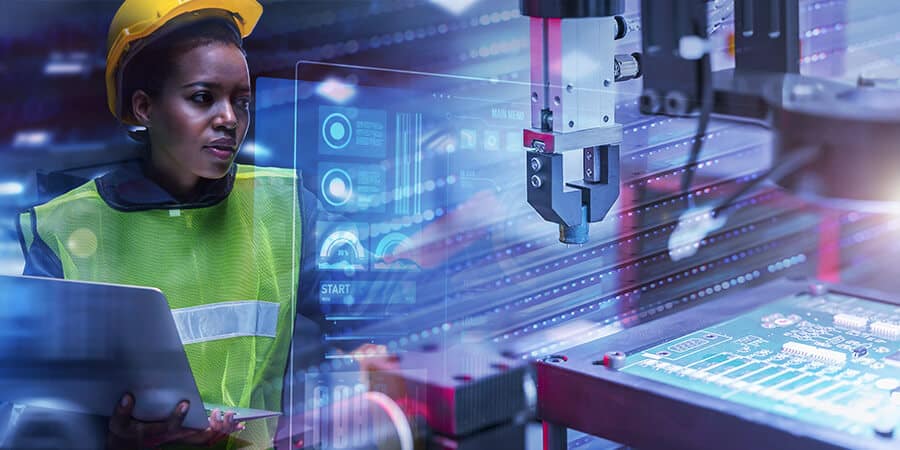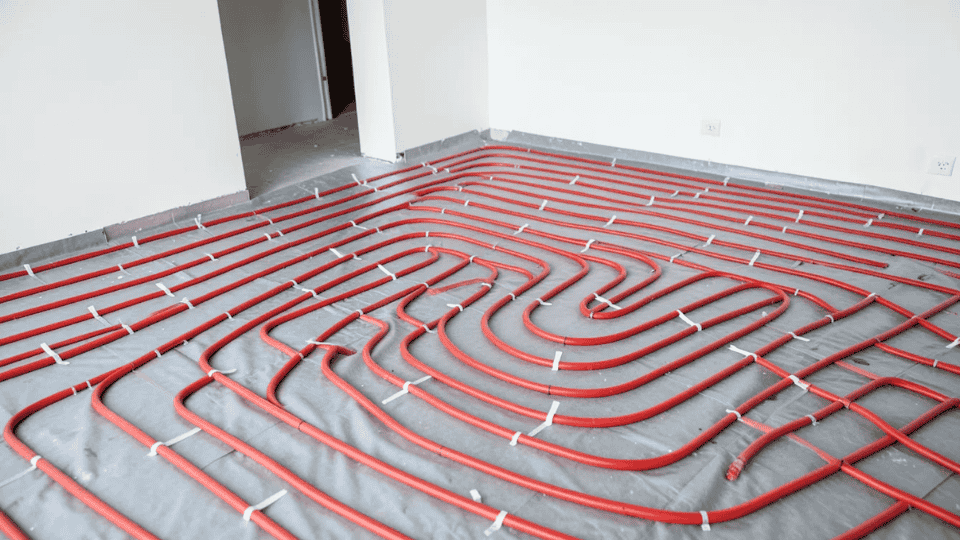When you think about what makes our world run smoothly—cars that start on cold mornings, planes that take off safely, and water that flows cleanly from your tap—it all comes down to one thing: reliability. And behind that reliability sits a force we often take for granted but rely on every single day—modern manufacturing.
From the smallest bolts to the largest bridges, today’s manufacturing systems are shaping a world that’s stronger, smarter, and more dependable than ever. But what exactly has changed? And how are these advancements making our daily lives more stable, efficient, and sustainable?
Let’s explore how modern manufacturing is quietly powering a more reliable world.
The New Age of Reliability
It’s no exaggeration to say that manufacturing is the backbone of our global society. Everything we use—our homes, our electronics, our transportation—exists because someone, somewhere, built it with care and precision. But the story isn’t just about assembly lines or factory floors; it’s about how far we’ve come in designing processes that deliver consistency and trust at scale.
In the past, manufacturing was all about speed and quantity. Make more. Make faster. Keep costs low. But in today’s world, that mindset doesn’t cut it. Consumers demand quality that lasts. Businesses expect reliability. And industries rely on products that don’t just function but perform flawlessly, time after time.
Reliability isn’t a trend—it’s the new standard. And manufacturing is the engine driving that standard forward.
From Manual to Intelligent: The Evolution of Manufacturing
Decades ago, manufacturing was hands-on. Skilled workers built things piece by piece, relying on craftsmanship honed over years. It was impressive, but it wasn’t perfect—human error was always part of the equation.
Fast forward to today, and we’re living in the era of smart manufacturing. Machines are now interconnected through sensors, automation, and data-driven systems. Artificial intelligence predicts maintenance needs before issues occur. Robotics assemble products with precision that the human hand simply can’t replicate.
This revolution—known as Industry 4.0—has transformed the way we create everything from electronics to infrastructure. Modern factories are efficient, intelligent, and capable of delivering near-perfect consistency. The result? Products that don’t just meet expectations but exceed them.
The Strength Behind the Scenes: Materials That Make the Difference
Here’s something that often goes unnoticed: the reliability of any system starts with the materials it’s made from. The strength of a bridge, the safety of an airplane, or even the plumbing system in your home depends on the quality and durability of its components.
Today’s engineers are working with advanced materials—metals, composites, and sustainable alternatives—that can withstand extreme conditions. These materials aren’t just strong; they’re designed to resist corrosion, pressure, and wear over time.
Think about it: even a simple connection point in a plumbing system can determine how well an entire operation runs. That’s why precision components, such as stainless steel tank fittings, play a critical role in ensuring long-term dependability. They might seem like small details, but they’re the unsung heroes that keep everything flowing, secure, and safe.
When the right materials meet the right design, reliability stops being an aspiration—it becomes a guarantee.
Automation and Precision: Eliminating Error, Enhancing Performance
Machines don’t get tired or distracted. They don’t cut corners. And in manufacturing, that’s a game-changer.
Automation has taken reliability to a new level. Robots assemble parts with pinpoint accuracy, while AI-powered systems monitor quality in real time. Sensors detect the tiniest inconsistencies long before they become problems.
Imagine a production line where every process, every tool, and every piece of data is connected—constantly communicating to make real-time adjustments. That’s the world we’re in now. The fusion of automation and analytics has created systems that are not only efficient but nearly error-proof.
By minimizing human error and maximizing precision, automation ensures that what’s made today performs perfectly tomorrow—and years down the line.
Sustainability: Building a Future That Lasts
Reliability and sustainability go hand in hand. After all, what’s the point of creating long-lasting products if the process harms the environment?
Modern manufacturers are embracing greener practices. They’re cutting waste, reusing materials, and designing products for longevity rather than disposability. This shift toward “circular manufacturing” reduces environmental impact while improving product performance.
A durable product is, by definition, a sustainable one. Fewer replacements mean fewer resources consumed and less waste generated. Companies that focus on both strength and sustainability are proving that you don’t have to sacrifice one for the other—you can have both.
In fact, the drive toward eco-friendly materials often leads to better innovation. Stronger alloys, energy-efficient machinery, and recyclable materials aren’t just better for the planet—they’re more reliable for businesses and consumers, too.
Resilience in Motion: Rethinking Supply Chains
We learned a big lesson in recent years: even the most advanced technology is only as strong as its supply chain. A single delay or shortage can ripple across the world, halting production and disrupting industries.
But the silver lining is innovation. Companies are reimagining their supply chains to make them more agile, transparent, and resilient. Real-time tracking, diversified sourcing, and regional production hubs are becoming the norm.
These changes mean that products reach customers faster, with fewer interruptions. It also ensures that quality doesn’t slip through the cracks, even when challenges arise. A resilient supply chain isn’t just efficient—it’s reliable, adaptable, and built for the unexpected.
People Still Matter: The Human Touch in a High-Tech World
With all this technology talk, it’s easy to forget that manufacturing still depends on people—just in new ways.
Today’s factory workers are engineers, programmers, and problem-solvers. They work alongside machines, fine-tuning processes and pushing innovation further. Human insight drives the creativity that automation alone can’t replicate.
Modern manufacturing is a partnership between human intuition and digital precision. Workers aren’t just assembling parts—they’re designing smarter systems, monitoring quality, and reimagining what’s possible.
Because no matter how advanced the technology becomes, human ingenuity remains the heart of reliability.
Why Reliability Is the Real Competitive Edge
In a world that moves faster every year, reliability has become the most valuable quality a company can offer. It’s what keeps customers loyal, operations efficient, and reputations strong.
Modern manufacturing delivers that reliability through precision, data, and innovation. Every component, every connection, every process contributes to a system you can count on.
Reliability doesn’t happen by accident—it’s engineered into every detail. And that’s what separates good products from great ones.
From Innovation to Everyday Impact
Think about your daily routine. You turn on the faucet, start your car, plug in your phone—all effortless actions that rely on countless systems working in perfect harmony.
That harmony exists because of the invisible world of manufacturing. Every valve, fitting, circuit, and frame is part of a chain of trust built through technology, testing, and experience.
Modern manufacturing isn’t just about mass production anymore. It’s about making things better, not just making more of them. It’s about long-term performance, not quick fixes. It’s about confidence in every product we touch.
A Reliable World Starts with Reliable Connections
At the end of the day, reliability is about relationships—between people, materials, and systems. It’s about making sure every connection, big or small, holds strong.
That’s why the best manufacturers prioritize partnerships with suppliers who value quality above all else. When companies invest in dependable components and materials, they’re building a foundation that lasts.
Because when every part performs as it should, the whole world runs just a little more smoothly.
Conclusion: Built for What’s Next
We live in an age defined by speed and complexity—but also by resilience. Modern manufacturing is leading the charge, transforming not just how we build things but how we trust them.
From advanced materials and intelligent automation to sustainable practices and skilled craftsmanship, manufacturing has evolved into something more than an industry—it’s the backbone of global reliability.
So next time you flip a switch, take a drive, or turn on the tap, remember: reliability isn’t just a convenience. It’s the result of countless innovations working together in perfect precision—proof that modern manufacturing truly is powering a more reliable world.








